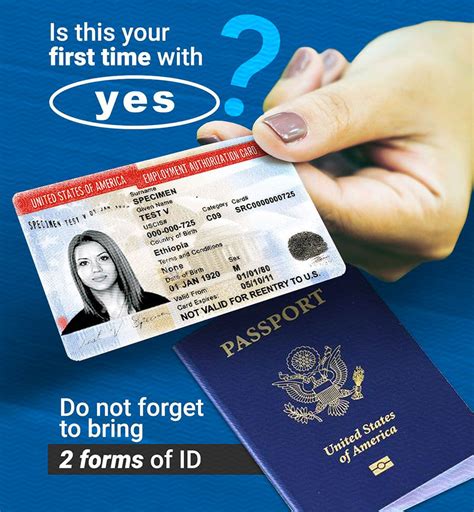Job Interview Ids: 2 Forms + Required Documents

When preparing for a job interview, it is important to have all the necessary documentation in order. One crucial aspect is having the appropriate identification documents. In this article, we will discuss the two forms of identification that are commonly required for job interviews, as well as the other documents that may be necessary.
1. Primary Identification Documents
Primary identification documents are those that are typically accepted as valid proof of identity. These documents usually include:
- Government-issued photo ID: This can be a passport, driver’s license, or national ID card. It should have your name, date of birth, and a clear photograph.
- Social Security card: This is a vital document in the United States, as it contains your unique Social Security number. It is used for tax purposes and to verify your eligibility to work.
These two forms of identification are often required to establish your identity and eligibility to work in a job interview. Make sure to bring original copies of these documents as photocopies or digital copies may not be accepted.
2. Secondary Identification Documents
In addition to primary identification documents, you may also be required to provide secondary identification documents. These documents can further support your identity and provide additional information about your background. Some examples of secondary identification documents include:
- Birth certificate: This document verifies your date of birth and can be used as an additional proof of identity.
- Utility bills: These can establish your current address and can be used to verify your residency.
- Bank statements: These documents can show your financial stability and provide additional proof of address.
- Educational certificates: These can demonstrate your qualifications and educational background.
It is advisable to bring multiple secondary identification documents to the job interview, as they can strengthen your overall application and make a positive impression on the interviewer.
3. Required Documents for Specific Industries
Depending on the industry or job role you are applying for, there may be additional documents required. Some examples include:
- Professional licenses or certifications: If you are applying for a job that requires specific licenses or certifications, such as nursing or teaching, make sure to bring the original copies.
- Work permits or visas: If you are an international applicant, you may need to provide documentation to prove your eligibility to work in the country.
- Portfolio or work samples: For creative or technical roles, it may be beneficial to bring samples of your work to showcase your skills and experience.
- References: Some employers may require references from previous employers or colleagues to verify your work history and character.
Research the specific requirements for your industry and job role beforehand, and ensure you have all the necessary documents prepared and organized for the interview.
Conclusion
Having the correct identification documents is essential for a successful job interview. Primary identification documents, such as a government-issued photo ID and Social Security card, are typically required. Secondary identification documents, such as a birth certificate or utility bills, can further support your identity. Additionally, certain industries may require specific documents, such as professional licenses or work permits. By being prepared and organized with the necessary documents, you can make a positive impression and increase your chances of success in the job interview.
Frequently Asked Questions
1. Are photocopies or digital copies of identification documents accepted?
No, it is generally recommended to bring original copies of your identification documents as photocopies or digital copies may not be accepted. This ensures the authenticity and validity of the documents.
2. What if I don’t have a Social Security card?
If you do not have a Social Security card, you should contact the appropriate government agency to obtain one. The Social Security Administration can provide guidance on the application process and requirements.
3. Do I need to bring all secondary identification documents?
No, it is not necessary to bring all secondary identification documents. However, having a variety of documents can strengthen your overall application and provide additional proof of your identity and background.
4. How can I find out the specific requirements for my industry?
You can research the specific requirements for your industry by checking the job posting or contacting the employer directly. Additionally, professional associations or licensing boards in your industry may have information regarding the necessary documents.
5. Should I bring multiple copies of my identification documents?
It is generally recommended to bring multiple copies of your identification documents, especially if you are applying to multiple job opportunities. This ensures that you have backup copies in case any documents are misplaced or if multiple interviews are scheduled.
